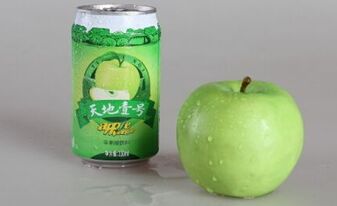苹果醋是否有利于身体健康?
|
As a practicing physician and professor of medicine, people ask me about the benefits of drinking apple cider vinegar all the time. I enjoy those moments, because we can talk about the history of vinegar, and then distill the conversations to how it could, maybe, benefit them. A cure for colds, the plague and obesity?
Historically, vinegar has been used for many ailments. A few examples are that of the famous Greek physician Hippocrates, who recommended vinegar for the treatment of cough and colds, and that of the Italian physician Tommaso Del Garbo, who, during an outbreak of plague in 1348, washed his hands, face and mouth with vinegar in the hopes of preventing infection. Vinegar and water has been a refreshing drink from the time of Roman soldiers to modern athletes who drink it to slake their thirst. Ancient and modern cultures the world over have found good uses for "sour wine." While there is plenty of historical and anecdotal testimony to the virtues of vinegar, what does medical research have to say on the subject of vinegar and health? The most reliable evidence for the health benefits of vinegar come from a few humans studies involving apple cider vinegar. One study demonstrated that apple cider vinegar can improve after-meal blood glucose levels in insulin-resistant subjects. In 11 people who were "pre-diabetic," drinking 20 milliliters, a little more than one tablespoon, of apple cider vinegar lowered their blood sugar levels 30-60 minutes after eating more than a placebo did. That's good - but it was only demonstrated in 11 pre-diabetic people. When my brother and I were kids back in the '80s, we loved going to Long John Silver's. But it wasn't just for the fish. It was for the vinegar - malt vinegar. We would uncap a bottle at the table and swig that tangy, delicious nectar of the gods straight. Some social media and online searches would have us believe that drinking vinegar is a cure-all. However, the health benefits we suspect vinegar has need to be confirmed by larger human studies. |









